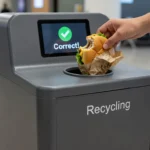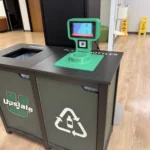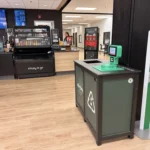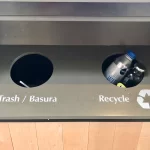Recycling programs often operate on assumptions rather than hard data. Without clear insights into how materials are sorted, collected, and processed, waste management efforts can become inefficient, leading to unnecessary contamination, increased operational costs, and lower recycling rates. In an age where data is the foundation of progress, why should recycling be any different?
At Waste Wise Innovation, we believe that real-time data analytics are key to improving sustainability efforts. By leveraging smart technology, businesses and municipalities can track and optimize their waste management strategies, making recycling more effective and less wasteful.
Identifying the Weak Links in Waste Management
One of the biggest challenges in recycling is contamination. When non-recyclable items end up in the wrong bins, entire batches of otherwise recyclable material can become compromised. Traditional waste audits, while useful, are often time-consuming, expensive, and limited in scope. They provide a snapshot of the problem but fail to offer a continuous, real-time picture of waste generation and sorting habits.
This is where data-driven solutions come in. With real-time tracking, we can pinpoint when and where contamination happens, helping businesses and municipalities intervene proactively. Instead of relying on generalized guidelines, waste managers can implement targeted educational programs, adjust bin placement, or refine sorting instructions based on real behavioral insights.
Optimizing Collection Schedules with Smart Tracking
Overfilled bins lead to littering, while half-empty ones signal inefficient collection routes. Without accurate data, collection schedules are often based on fixed timelines rather than actual need. This leads to unnecessary fuel consumption, increased labor costs, and wasted resources.
With built-in tracking capabilities, our Topper Stopper™ units provide precise data via TS Analytics™ on bin fill levels, contamination rates, and collection trends. This allows waste managers to adjust pickup schedules dynamically, ensuring that bins are serviced at the right time; no more, no less. Not only does this reduce costs, but it also minimizes the environmental impact of collection vehicles operating unnecessarily.
Measuring and Tracking Waste Diversion Over Time
The ultimate goal of any recycling initiative is to divert as much waste as possible from landfills. But how can organizations know if their programs are working? Tracking diversion rates over time provides a clear indicator of progress. By monitoring how much material is successfully recycled versus sent to landfills, businesses and municipalities can assess the impact of their efforts and refine their strategies accordingly.
Our Topper Stopper™ units make this easier by providing real-time insights into waste diversion metrics. Multiple levels of data are presented in TS Analytics™ to show not only the overall quantity of materials but each individual item that was collected through the Topper Stopper™ units. Instead of relying on broad estimates, organizations can access accurate, granular data that informs decision-making. This level of transparency helps justify sustainability investments, meet regulatory requirements, and demonstrate corporate or municipal responsibility to stakeholders.
Data-Driven Sustainability: The Future of Waste Management
The power of data in waste management cannot be overstated. By moving away from outdated, assumption-based approaches and embracing real-time analytics, we can make smarter, more effective decisions that lead to measurable improvements in recycling rates. Waste Wise Innovation is committed to providing the tools necessary to make this shift, ensuring that businesses and municipalities have the insights they need to drive true sustainability.
With solutions like Topper Stopper™ and TS Analytics™, waste management is no longer a guessing game. It’s an optimized, intelligent process that transforms recycling from an obligation into an opportunity for real environmental impact. The future of recycling isn’t just about throwing things in the right bin, it’s about knowing exactly what happens next and using that knowledge to do better.






